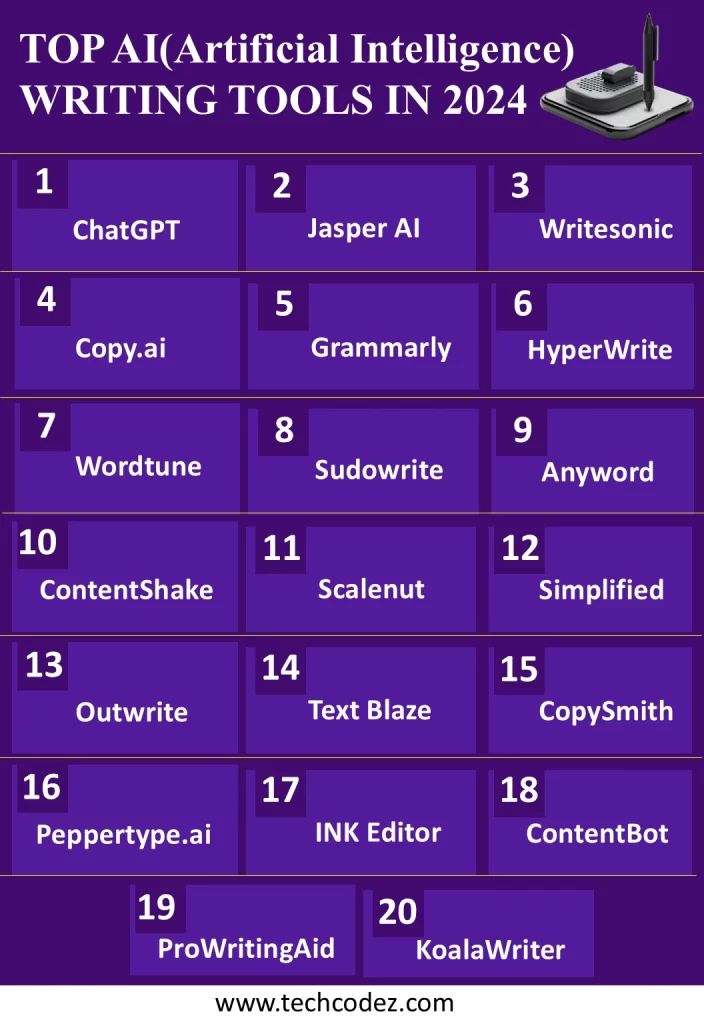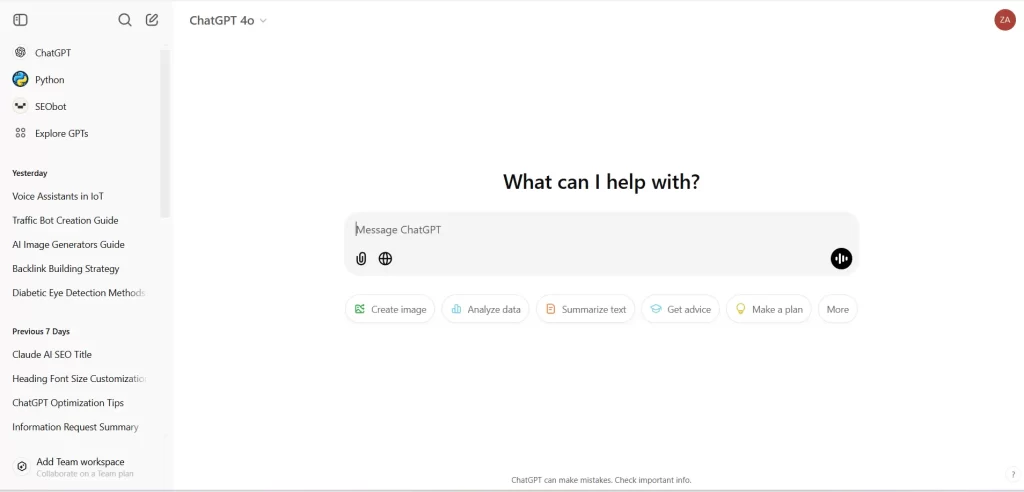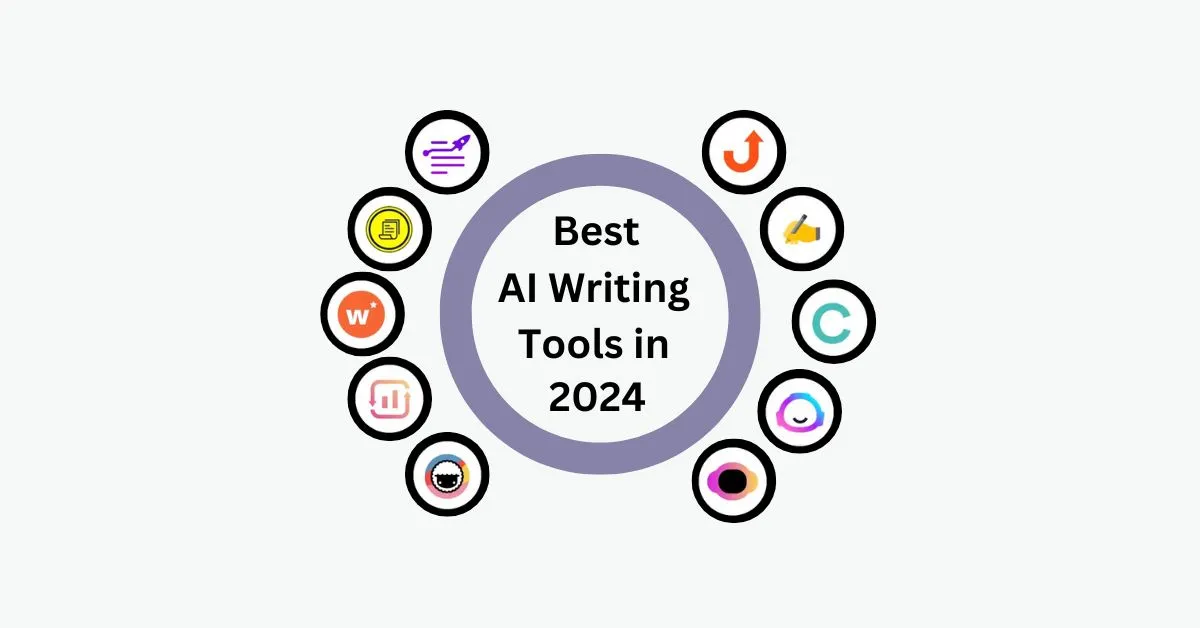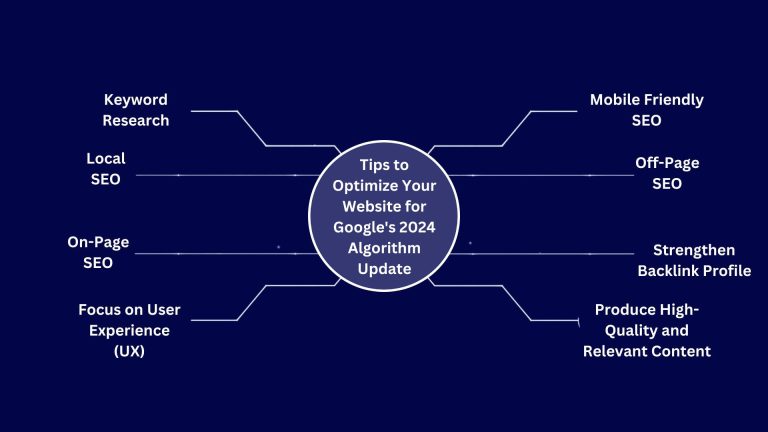Best AI Writing Tools in 2024
Introduction
AI writing tools are unconventional software solutions that use artificial intelligence algorithms to write or create content.
The biggest strength of these AI writing tools is their capability to improve the quality of the text regarding grammar, spelling, punctuation, and even style or tone. They give suggestions of synonyms so that the content developed becomes more accurate, concise, and stimulating. Users can avoid some of the common errors and improve their writing ways with these tools.
AI writing tools are helpful for up-to-date research discoveries and for reducing mistakes. It is recommended to use them as complementary resources not replacements for work. Their features range from improving the quality of writing to increasing the speed of work. Writers should consider these tools as aids or writing assistants to their work.
This article offers a comprehensive guide to the Best AI Writing Tools in 2024, their features and their cost. Ready to take your content creation to the next level with the best AI writing tools of 2024 and how they stack up? Share this article on your social media to spread the information.
What Are AI Writing Tools?
Understanding AI Writing
Before further going deep into the details of the possibilities offered by AI writing tools, it is necessary to define their basics. All AI writing algorithms work on large data sets and are programmed to emulate human prose, in that way, adjusting the diction and flow to fit the subject or the intended use. These tools work by employing algorithms and ML; analyzing text and understanding grammar concepts. They are capable of writing anything from a simple paragraph to an elaborate article depending on the requirements.
How Do AI Writing Tools Work?
Automated writing assistants like chatbots and grammar checkers use NLP, machine learning and large language models to either create or improve text. These tools learn from big data and use this learning experience to generate natural language outputs from inputs or prompts given to the tool.
AI tools work in different ways because they employ different methods. For example, OpenAI has introduced an artificial intelligence model called ChatGPT (relying on GPTs), which stands for generative pre-trained transformers. It uses reinforcement learning from human feedback, (RLHF) here human feedback is used to help refine the model for better more accurate, and thorough answers.
Benefits of AI Writing Tools for Content Creators, Marketers and Businesses
- Enhanced Productivity: These tools help in content creation by providing initial drafts, which means that the creators can work on more important strategies or issues.
- Consistent Content Quality: Can be used to keep the same tone, style and quality in check which is vital in keeping up the brand image across different interfaces.
- SEO Optimization: With features like keyword suggestions, meta description, and readability analysis, these tools enhance visibility on search engines.
- Personalization at Scale: AI tools receive and process information that allows for creating personal messages for different groups.
- Improved Creativity: AI applications assist in countering stagnation and increasing creativity.
- Multilingual Support: The capacity of AI to work with multiple languages makes it possible for businesses to communicate in many markets.
- Error-Free Content: Spelling and grammar check options help to produce professional content with few to no mistakes.
- Enhanced Collaboration: Plays well with project management tools to make the collaboration of a team and tactics more effective.
Top AI Writing Tools in 2024

Below here is a list of the Top 20 AI writing tools in 2024…
1. ChatGPT
- Overview: The conversational AI of OpenAI is highly useful for content generation, ideation, and coding.
- Key Features: Utility device, NLP, CI.
- Pros: It is a friendly and flexible.
- Cons: It is best used when clear prompts are set to be followed to achieve the best results.
- Pricing: A free version is available and paid version is at $20 per month.
- Ideal For: Students, bloggers, and business people.

Best Top 20 AI writing Tools
1 – Chatgpt
2. Jasper AI
- Overview: Popular for creating good marketing and creative content.
- Key Features: Search engine optimization, article writing and picture (images) creation.
- Pros: Easy to use, customizable results.
- Cons: Costly for small business.
- Pricing: Starts at $39/month.
- Ideal For: Marketers and copywriters.
3. Writesonic
- Overview: Tailored for creating diverse content, from ads to blog posts.
- Key Features: GPT-4-based, multilingual support, customizable tones.
- Pros: Affordable and versatile.
- Cons: Limited originality in some cases.
- Pricing: Free plan available; premium starts at $12.67/month.
- Ideal For: Freelancers and digital marketers.
Best Top 20 AI writing Tools
3 – Writesonic
4. Copy.ai
- Overview: Saves time on creating marketing content.
- Key Features: Newsletter, blog articles, ad slogans.
- Pros: Simple to use.
- Cons: Limited creative depth.
- Pricing: Free plan; Pro at $49/month.
- Ideal For: Small businesses and marketers.
Best Top 20 AI writing Tools
4 –Copy.ai
5. Grammarly
- Overview: An artificial intelligence-based grammar and writing tool.
- Key Features: Real-time feedback, language and tone changes, and checking for plagiarism.
- Pros: Very good in terms of grammar and punctuation.
- Cons: Restricted for creating content beyond a single post or article.
- Pricing: Free version available; Paid version available at $12 per month.
- Ideal For: Writers and students.
Best Top 20 AI writing Tools
5 –Grammarly
6. HyperWrite
- Overview: Provides natural language processing for generating content in less time.
- Key Features: Punctuation and compliance with the business’s style manual.
- Pros: Free basic tier/level.
- Cons: Less features in the pro version than in the paid one.
- Pricing: Premium plans are available at $19.99 per month.
- Ideal For: Freelancers and businesses.
Best Top 20 AI writing Tools
6 – HyperWrite
7. Wordtune
- Overview: Mainly concerned with the readability and the writing style.
- Key Features: Thesaurus vocabulary options, changing the order of the sentences.
- Pros: Improves language variety.
- Cons: Some of the suggestions provided by AI may be repetitive.
- Pricing: Free version; Premium from $14.99/month.
- Ideal For: Professionals and students.
Best Top 20 AI writing Tools
7 – Wordtune
8. Sudowrite
- Overview: A specialized tool for fiction writers only.
- Key Features: A list of ideas for creating characters and plots.
- Pros: Easy to use for creative writers.
- Cons: Limited memory for details.
- Pricing: Starts at $19/month.
- Ideal For: Fiction writers.
Best Top 20 AI writing Tools
8 – Sudowrite
9. Anyword
- Overview: Meant to be used by marketers.
- Key Features: Conversions and targeted communications.
- Pros: Suitable for SEO and niche target audience content creation.
- Cons: High pricing.
- Pricing: Starter plan at $49/month.
- Ideal For: Marketers.
Best Top 20 AI writing Tools
9 – Anyword
10. ContentShake
- Overview: Designed for making the process of creating content for SEO easier.
- Key Features: Topic research, content optimization.
- Pros: Collaborative tools.
- Cons: Requires some level of SEO expertise.
- Pricing: Custom pricing plans.
- Ideal For: SEO professionals.
Best Top 20 AI writing Tools
10 – ContentShake
11. Scalenut
- Overview: A content research and generation platform that is primarily designed for SEO content writing.
- Key Features: Topic analysis, competitor study, search engine optimization.
- Pros: Incorporates research with writing.
- Cons: Slightly harder to learn than other AI tools for beginners.
- Pricing: Plans start at $29/month.
Best Top 20 AI writing Tools
11 – Scalenut
12. Simplified
- Overview: A design and content creation collection with built-in AI writing.
- Key Features: Blog writing, ad copy generation, team collaboration tools.
- Pros: All-in-one solution.
- Cons: Limited advanced features for writing.
- Pricing: Free tier; Pro plan starts at $12/month.
- Ideal for: small businesses.
Best Top 20 AI writing Tools
12 – Simplified
13. Outwrite
- Overview: A grammar and style tool with AI-driven rephrasing capabilities.
- Key Features: Grammar check, plagiarism check, writing feedback.
- Pros: Enhances clarity and tone.
- Cons: Limited to long-form content only.
- Pricing: The basic plan is free; the Pro plan is $9.95 per month.
Best Top 20 AI writing Tools
13 – Outwrite
14. Text Blaze
- Overview: Saves time on writing repetitive texts by using templates.
- Key Features: Shortening of text, expansion of the text, customization available.
- Pros: Saves the time that would otherwise be spent performing routine activities.
- Cons: Focused on shorter content.
- Pricing: Basic plan is free; Premium at $2.99 per month.
- Ideal For: Customer support teams and email marketers are the most common users of chatbots.
Best Top 20 AI writing Tools
14 – Text Blaze
15. CopySmith
- Overview: Specifically designed for use in e-commerce and product description.
- Key Features: Headlines, slogans, taglines, title ideas, headline ideas, headline suggestions, headline concepts, title concepts, title suggestions, title headlines, headline titles.
- Pros: E-commerce-specific features.
- Cons: Limited versatility.
- Pricing: Plans start at $19/month.
- Ideal For: E-commerce businesses.
Best Top 20 AI writing Tools
15 – CopySmith
16. Peppertype.ai
- Overview: Marketing tool that leverages artificial intelligence to develop interesting marketing content.
- Key Features: Weblog overviews, advertisements, and social media promotions.
- Pros: Fast and user-friendly.
- Cons: Not as effective for creative writing.
- Pricing: Starting at $25/month.
- Ideal For: Marketers and agencies.
Best Top 20 AI writing Tools
16 – Peppertype.ai
17. INK Editor
- Overview: It integrates content optimization and artificial intelligence writing in one application.
- Key Features: Search engine optimization, making content easier to read.
- Pros: Emphasis on increasing the search engine optimization.
- Cons: Because there are many elements in a UI design, it can be challenging for a novice to understand.
- Pricing: Free basic version; Pro version costs $22 per month.
- Ideal For: SEO-driven content creators.
Best Top 20 AI writing Tools
17 – INK Editor
18. ContentBot
- Overview: An all-round AI writer for different forms.
- Key Features: Blog post introductions, headlines, ads.
- Pros: Versatile, budget-friendly.
- Cons: Lack of support for higher-order writing skills.
- Pricing: Pricing begins at $1 for 5,000 words.
- Ideal For: Freelancers and businessmen.
Best Top 20 AI writing Tools
18 – ContentBot
19. ProWritingAid
- Overview: A strong grammar and style checker with artificial intelligence integration.
- Key Features: Detailed articles, compatibility with Word and Scrivener.
- Pros: In-depth for professional writers only.
- Cons: Slower than Grammarly for quick fixes.
- Pricing: The basic annual subscription is available for $70 per year.
- Ideal For: Journalists, writers and freelance editors.
Best Top 20 AI writing Tools
19 – ProWrit
20. KoalaWriter
- Overview: Focusing on blog posts and articles as a type of content.
- Key Features: Web optimization-friendly recommendations, article organization.
- Pros: Quality outputs for blogs.
- Cons: Limited creative freedom.
- Pricing: Custom pricing.
- Ideal For: Bloggers and content marketers.
Best Top 20 AI writing Tools
20 – KoalaWriter
Best Top 20 AI writing Tools Name , Top Features , Prices and Ideal For Users
Table of Best Top 20 AI writing Tools Name , Top Features , Prices and Ideal For Users
| Tools Name | Top Features | Prices | Ideal For Users |
|---|---|---|---|
| ChatGPT | Content generation, SEO support, multilingual support | Free, $20/month for Pro | Students, bloggers, businesses |
| Grammarly | Grammar and style check, plagiarism check | Free, $12/month for Pro | Writers, students, editors |
| Jasper AI | SEO optimization, article writing, image creation | Starts at $39/month | Marketers, content creators |
| Writesonic | Ads, blog posts, customizable tones | Free, $12.67/month for Premium | Freelancers, digital marketers |
| Wordtune | Grammar, punctuation, tone adjustment | Free, $12/month for Pro | Students, professionals, writers |
| Anyword | Natural language processing, style compliance | Free basic, $19.99/month for Premium | Freelancers, businesses |
| Copy.ai | Improves readability, thesaurus support | Free, $14.99/month for Premium | Students, professionals |
| Scalenut | Character and plot suggestions, creative writing | Starts at $19/month | Fiction writers |
| ContentShake | Conversions, targeted communications | Starts at $49/month | Marketers |
| Outwrite | Topic research, content optimization | Custom pricing | SEO professionals |
| Peppertype.ai | Competitor analysis, SEO integration | Starts at $29/month | SEO content writers |
| HyperWrite | Team collaboration, blog writing | Free, $12/month for Pro | Small businesses |
| Simplified | Grammar check, plagiarism detection | Free, $9.95/month for Pro | Writers, students |
| ProWritingAid | Shortening and expanding text, templates | Free, $2.99/month for Premium | Customer support, email marketers |
| Sudowrite | Headlines, slogans, e-commerce focus | Starts at $19/month | E-commerce businesses |
| Text Blaze | Marketing content, ads, social media | Starts at $25/month | Marketers, agencies |
| CopySmith | SEO-friendly content, readability improvement | Free, $22/month for Pro | SEO-driven content creators |
| INK Editor | Blog post introductions, headlines, ads | Starts at $1 for 5,000 words | Freelancers, businesses |
| ContentBot | In-depth grammar and style check | Starts at $70/year | Journalists, writers |
| KoalaWriter | Blog posts, article organization | Custom pricing | Bloggers, content marketers |
Applications of AI Writing Tools
AI writing tools are quite useful in many ways. Below are some notable applications :
Teaching and Learning with Feedback
The generative AI writing tools enhance conversational learning by allowing users to pose questions and participate in learning activities at their convenience. Also, these tools can give feedback on the clarity and coherence of written work and ensure that all the papers produced are standard. But care should be taken not to upload any sensitive data as inputs are usually saved by the tool for future model training.
Research Questions and Outlines
AI writing tools are good for creating initial phrases for research topics and outlines for papers. To the above outputs, users can add more prompts or directly edit the content to achieve their objectives.
Paraphrasing Text
Rephrasing involves rewriting written content in a manner that organizes it in a better way, eliminates unnecessary information, and keeps it unified in terms of style. They are especially helpful when it comes to including scholarly sources in the writing process without using quotes. That being said, citation is crucial to avoid plagiarism by mistake.
Summarizing Text
AI writing tools can summarize large texts and extract the most important and pertinent information to help understand complex data. These tools can also provide a summary of the work done, arguments made, research questions and even conclusions. Generative AI platforms are useful in these tasks as well as specialized tools.
Proofreading Text
Most of the AI tools are capable of pointing out and even correcting most of the spelling, grammar and punctuation errors; helping in producing quality content. Even though, there are many helpful suggestions from tools, the output should be checked carefully because AI can miss some mistakes or make new ones.
Translating Text
Google Translate and several other applications are available forms of AI that allow the translation of text from one language to the next. Although the quality of translations may vary depending on the languages involved, these tools are continually improving and becoming more reliable for multilingual communication.
Factors to Consider When Choosing an AI Writing Tool
Identify Your Needs: Start by identifying the tasks in which you require help for instance content generation, search engine optimization, or research. It will help you make the right decision when it comes to choosing the right AI tool for your needs.
Research and Compare Options: Compare the features of all available tools, their cost, and their performance as rated by the users through free trials to know the ones that will suit you best.
Evaluate Key Features
Focus on essential features when comparing tools:
- Content Quality: Is the content produced by the tool of high quality, motivating and accurate?
- Ease of Use?
- Integration: Does it integrate well with the other tools you use, for instance, SEO tools or content management platforms?
- Customization: Does it let you make some changes to fit your style or the specific needs of your business?
Budget and Pricing Plans
AI writing tools come in different pricing structures, with some being free, many being paid on a subscription basis, and others being paid for only once. Select a tool that fits your budget. Determine the nature of what each plan provides.
Support and Updates
Choose tools that offer good customer support and updates as often as possible. This makes it easier to run and at the same time keep the tool in line with technological developments.
AI writing tools must pose the following features…
- Content Generation Excellence: The best tools produce a wide range of content, from large articles to short ad copy and social media posts but remain relevant and unique.
- Ease of Navigation: Intuitive design improves efficiency and allows the tool to be used by both novice and professional authors.
- Seamless Integration: Current AI tools or software works in harmony with SEO solutions, compilers, and CMS, simplifying content production and promotion.
Most Recommended AI Writing Tools
Versatile All-Rounders
- Jasper AI: Specialized in producing good quality blog articles, social media content, and SEO-optimized content.
- Copy.ai: Ideal for marketing copy, offering templates for ads, emails, and landing pages.
Specialized Tools
- Sudowrite: Perfect for creative writing, helping fiction writers with plot ideas and character development.
- Writerly: Ideal for creating in-depth articles, blogs, and e-books with SEO optimization capabilities.
Additional Tips for Choosing the Right Tool
- Try free versions of the tools first to test their capability as well as integration into the work processes.
- Align the tool’s advantages with your objectives related to marketing content, articles, or SEO needs.
- Select a tool with a simple interface.
Advantages and Limitations
AI has brought changes in many aspects of life. This section looks at what using AI to write could work for you as well as the things that may not be so good about using Ai writing tools.
Advantages and Disadvantages of AI Writing Tools
Pros of AI Writing Tools
Efficiency: AI helps in writing or creating content. It can write website content, an advertisement, or even an entire article within a few minutes, sometimes with just a few keywords. This is especially useful in fulfilling the increasing need for high-quantity production of content.
Cost-Effectiveness: AI writing tools are cheaper than human writers because the subscription fees are more reasonable. For companies with a small budget, these tools are beneficial as they do not have to hire professional writers.
Idea Generation: These can assist in countering writer’s block by providing ideas for blog posts or articles. Some of them even scan the content of the websites you visit and suggest topics related to your audience.
SEO Integration: Some AI writing tools have the capability of generating SEO-friendly content such as meta titles, and meta descriptions. To the people or companies that may not have the slightest idea of the on-page SEO requirements, these features make the optimization process easier and help to increase visibility on search engines.
Localization of Language: AI writers adapt content to specific regional dialects and terminology. For instance, they can replace the term “sweater” with “jumper” when targeting a British audience. This functionality ensures cultural and linguistic relevance in global content strategies.
Continuous Improvement: Most artificial intelligence-based writing tools use machine learning to improve the quality of the work it does over time. These tools learn from the user and get better with time, their output increases in accuracy with usage.
Cons of AI Writing Tools
Dependence on Human Oversight: The AI technique continues to be significantly dependent on humans, present and former employees. It cannot be emphasized enough that content created by AI needs to be reviewed by a human for grammar, logic, and fact-checked. Before posting, users have to spend time on the quality check.
Potential for Errors: Although AI tools are advanced, they are not perfect. The review of punctuation or grammatical errors and incorrect sync taxonomy frequently occur, and need alteration.
Absence of Human Creativity and Personality: Human writers contribute passion and understanding to a writing piece that AI writing cannot do. Machines use fixed data and set algorithms whereas people use their experiences and feelings making content more diverse and interesting.
Bias in Content: People train AI systems and this can lead to the incorporation of biases into those AI systems in the content they generate or trainers of AI tools. Users’ feedback can also affect the tool’s output and may contain bias or incorrect information that is then repeated.
Tips to balance AI-generated content with human creativity
How to Integrate AI with Creativity?
- Use AI tools to come up with ideas, structure, or primary writing, but always edit and write in a way that is unique to you and your standpoint.
- Add emotional appeal, examples from personal experience, and narratives that help readers develop a relationship with the content; it is something that AI finds challenging.
- Always review content created by AI and ensure that it aligns with your brand personality, writing style, and your audience.
- Utilize AI for repetitive tasks, such as grammar checks or SEO optimization, while dedicating human effort to strategic thinking and creative storytelling.
- Learn how to amalgamate the material created by AI with an independent human effort to enhance the relevance and share updated human viewpoints.
- AI should be used to collect trends, facts and figures, and human writers should analyze the information and give sense to it.
- Do not heavily rely on the AI tools because it will make the collected content sound robotic and too similar since AI is normally used to generate generic phrases.
- Take turns with the collaboration where AI addresses the mechanical aspects of the content creation while human brings substance, imagination and passion.
- Monitor AI-created content to reflect quality and to stay relevant to the target audience for the intended purpose of the use.
AI’s accuracy and efficiency when combined with creativity and strategy allow you to create content that is effective, unique, and relevant to your goals.
The Future of AI Content Writing Tools
AI in content writing is set for formidable future developments that would facilitate the generation of vast, niche-based, and unique content in extremely record time. While AI will perform simple tasks such as writing a blog, creating ad content, or even news articles, human writers will focus on creative, strategic and appeal to emotional content.
It only indicates that soon, there will be a lot of improvement in technology telesales since the development of AI content writing focuses more on the improvements of personalization, contextual comprehension, and creativity. They will provide better and more efficient translations, compatibility with other technologies, and enhanced SEO and analysis features. Future tools are likely to allow for real-time updates of content, integration of multimedia and specializations in areas such as health and law. All the available AI writing tools are updating their responses by saving the current prompts and inputs and this will enhance their durability in the future as they will get maximum user experience with time and usage.
Collaboration features will change and enable the human-AI symbiosis that will improve efficiency and innovation. Ethical factors and measures to reduce bias will guarantee that content creation will be inclusive. As AI continues to gain more capability in terms of self-learning and predictive nature, these tools will turn content creation into a speed and scale-process and enable professionals from various fields to realize their objectives efficiently.
Final Thoughts
AI writing tools have become essential tools for writers, businesses, marketers, and companies in 2024. This article discussed some of the most effective tools that are out in the market, including the all-rounder ChatGPT and Jasper AI and more specialized ones such as Sudowrite and CopySmith. These tools meet different requirements and provide such options as spell check, keyword analysis, individual writing, translation, and others.
AI writing tools greatly improve efficiency, imagination, and affordability. These tools are useful for anyone who writes for a living, markets a business, or owns a business that needs content created professionally and quickly. However, one must know that they are not a replacement for human creativity and rational thinking but rather tools to support them. If you are still in doubt about which AI writing tool to use, then you need to define your needs. If you require creative help or fiction writing, then Sudowrite can be of help to you. For marketers, Jasper AI and Peppertype.ai are among the best tools to use when it comes to creating targeted campaigns.
AI writing tools remain a revolution in content creation as they help users to do more with less effort. When incorporated into your work, you can be able to compete with other companies/businesses while at the same time reducing costs.
Best AI Tools List
FAQs
What is the best free AI writing tool?
Some of the best free writing tools are ChatGPT, Writesonic, and Grammarly. Among them, there are obligatory ones including grammar check, text completed by itself, and SEO ability, but what to choose is decided by the concrete task.
Are AI writing tools good for SEO?
Indeed, there are SEO writing features such as keyword match, meta description, and readability of the content through AI tools to improve content exposure on search engines.
Can AI writing tools replace human writers?
AI tools are perfect for writing and automation but they cannot create, feel, and understand as a human writer does.
What are the advantages of AI writing tools?
AI tools increase efficiency, maintain quality, improve search engine ranking, translate, and offer affordable content services.
Define best AI writing tools for business?
Using tools such as Jasper AI, Writesonic, and Copy.ai is recommended for businesses since they provide long-form content generation, marketing content creation, as well as the capability to personalize the content on a large scale.
Can AI tools be used in creative writing?
Indeed, there are such tools as Sudowrite or HyperWrite for creative writing, they may suggest how to develop characters, where to get ideas for a plot, or what stylistic changes should be made.
Can small businesses use AI writing tools?
Certainly, there are cheap tools such as Writesonic and Copy.ai that come with affordable rates for businesses, including those with small scale, that include SEO optimization, content for marketing, and more, depending on the business needs.
Explain the drawbacks of AI writing tools?
Drawbacks involve creativity constraints, probable errors, liberal use of jargon, and profoundly depending on the user’s inputs to generate good results.
Can AI tools write in multiple languages?
Most of the AI tools are multilingual and can be implemented in organizations operating in different geographic locations.
What are the best uses of AI writing tools?
Some of the uses of the tool are in content writing, rewriting, abstracting, editing, search engine optimization, and creating marketing content.
What AI tools are most suitable for SEO specialists?
Among all, three are recommended for their SEO characteristics, including topic generation and suggestion, keyword insertion, and competitor analysis Jasper AI, Scalenut, and ContentShake.
What should you evaluate when choosing an AI writing solution?
These include how easy it is to use the tool or software, how much you will be required to pay, the SEO tools included, the quality of content, whether it supports multiple languages, and whether it integrates with existing processes.
What AI writing tool do you look forward to using in 2024? Please share your thoughts in the comments section below. If you enjoyed this AI writing tools guide, do not forget to share it with your friends and acquaintances and let others discover the future of writing.







